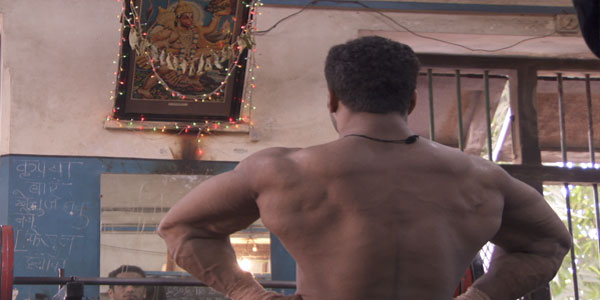
Activist Anand Pawar, Founder and Executive Director of SAMYAK, an organization committed to challenging hegemonic masculinity, deconstructs the notion of the ‘real’ man.
What is ‘mardangi’ or masculinity? In plain terms, it is the idea, the definition, the notion of a man—an ideal man or mard. It is also a system of defining manhood. Understanding masculinity or mardangi is important in understanding relationships and social construct.
It becomes a problem when a man acts out a notion that he has tried to fit himself in (or has been forced into). We once did a workshop in Mumbai where we used a life-sized cutout of John Abraham and asked youth to compare and rate themselves based on that. Everyone was unhappy. There was nothing wrong with the cut-out of the masculine actor, but it became a problem when so many youth felt inadequate after comparing themselves to him. When this so-called masculine man becomes the definition of what all men should be, then that’s where the problem begins.
Ideas of the ‘asli mard’ are perpetuated by society, media, our culture and even religion. Take for example in western Maharashtra, there are bullock cart races held in March (recently banned by the Supreme Court). Farmers participate in this men-only sport. Bulls are raised for this race. The man who wins is considered the ‘real’ man as this is a risky sport that only a ‘real’ man can win. The culture of this region creates that definition of manhood. Similarly, in areas of the Marathwada region of Maharashtra, the man who drinks alcohol without mixing it with any other drink or juice is looked up to.
In the media, ads show muscled men, clean-shaven chests, men wearing a particular brand of underwear above the jeans, men riding a particular bike, etc. All this is shown to be ‘cool’ but it propagates the idea of the ‘real man’ or manhood. Brands create masculinity and then customize their products to fit in that idea.
Even food defines how a man is looked at. In some parts of the country, a man who eats onions and garlic is said to be unable to control his sexual desires. In parts of Maharashtra, how you eat the bone marrow defines a man and so a woman is never given that part of the meat. He is judged on his manliness depending on whether he chews the bone marrow or cracks the bone open. In many households, sons observe and inculcate this behaviour.
Another aspect of mardangi is sexual prowess. In one workshop we organized, we asked boys, “What if a nice, well-built man was not able to perform in bed?” The common response was: “What kind of a man is that? Bina goli ki banduk kis kaam ki?” (“What is the point of an unloaded gun?”) Sexual performance becomes a burden for most men and if they fail, many indulge in domestic violence. It’s because of this pressure that often, young men are seen lying or exaggerating their sexual ‘escapades’. These ideas of manhood help men to reinforce the superiority they feel over women.
Masculinity is also expressed in symbols and behaviour. We have heard that at the Wagah border at the daily flag march, the soldiers who have the most facial hair and moustaches are selected to participate. The soldiers who can kick high during the march are made to parade there. It’s a peacetime march but has such streaks of violence in it. Risk taking, sexual performance, and violence is part of mardangi across the world. That’s why aspects like speeding and not wearing helmets are associated with men. Men are committing more suicides because they are trapped by mardangi and they cannot share their feelings. Women also accept the same definition of masculinity, as they also are socialized in this system that sets standards for masculinity and femininity. This is seen in various matrimonial ads.
For change to be possible in society, we need to challenge and transform that hegemonic idea of the ‘asli mard’ and bring forth role models, which are caring, nurturing, non-violent and peace-loving.
SAMYAK works in the field of gender, masculinities, health and development. Their community interventions focus on challenging patriarchal norms in society and bringing transformative institutional and structural changes to safeguard and promote human rights of all individuals.
Read more about their work here.